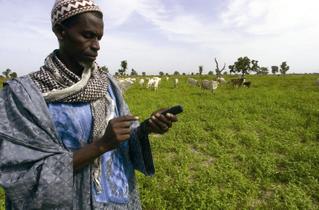Why Africa Could Use a Little Broadband

This intriguing article discusses the merits of broadband access in a developing region of the world such as Africa.
"Despite some growth and developments on the African broadband "scene", the market remains at very early stages in its development, and its reach is limited to a minimal target market. In a region such as Africa, where for many, access to basic amenities - such as healthcare - is limited, how great is the need for high-speed Internet access? It is easy to view broadband Internet access as a something of luxury, something that enables users to play games, download music, or watch film clips. How, then can it can be a priority for any developing region?
"Broadband may be considered a luxury to many African governments whose citizens still lack access to basic amenities such as clean drinking water" says Avita Dodoo, Project Officer for Internet Policy at ITU "However, failure to deploy such technologies may deny these countries an opportunity to participate fully in the knowledge economy of the 21st century.
"For a region such as Africa, broadband should not be viewed as a luxury, therefore, but as a necessity in an increasingly information-based society. Providing broadband access opens up a new door to a knowledge-based economy, which in turn will promote the region's social and economic development. Broadband can be harnessed to improve a number of key initiatives:
"Community Access: In rural or developing areas, broadband can be utilized in order to "leapfrog" the need for traditional fixed line infrastructure and provide access to voice, data and Internet services in regions which previously did not have access to fixed line services. The ITU's Telecommunication Development sector is in the process of implementing 3 pilot projects to determine the performance of WLANs for providing community access in rural areas of Uganda as well as Bulgaria and Yemen. With the help of broadband technology, rural and developing areas may be able to bypass the need altogether to install the older copper lines which are more common in the developed world.

"Community Telecentres: Crucially, in a region where PC penetration levels are among the lowest in the world, community telecentres play a key role in allowing small and medium sized enterprises (SMEs) who would otherwise not be able to afford it access to ICT tools. SMEs, along with cyber cafes are likely to be the biggest users in Africa of broadband and providing broadband access to telecentres would enable SMEs to benefit from it, and enhance their ability to compete in today's global marketplace.
"Cyber Cafes: Cyber cafes currently account for the majority of broadband users in Africa, and fill a vital market niche. As numbers of dial up subscribers in Africa are reaching a plateau- in terms of those who can actually afford a connection- cyber cafes allow those who cannot afford a fixed line connection to access the Internet. As cyber cafes increase, so too will the demand for broadband access and bandwidth capacity.
"E-health: The power of broadband will vitally enhance e-health initiatives such as...
"Telemedicine - providing medical services and healthcare remotely. In a number of African countries, telemedicine is making a real impact on the availability of health care and health care information. Broadband technology enables rural doctors to send complex x-rays to experts in major cities for diagnoses who then in turn send back their advice.
 "E-learning: Utilizing broadband can help e-learning initiatives such as the AVU (African Virtual University), a distance learning project which offers tertiary level training options to students living in the most remote and isolated communities in sub-saharan Africa. Broadband will help to expand interactivity between students and professors, using two-way video and audio streaming to help students in Zimbabwe query a professor in Canada, for example, whilst students in Rwanda or Kenya offer comments."
"E-learning: Utilizing broadband can help e-learning initiatives such as the AVU (African Virtual University), a distance learning project which offers tertiary level training options to students living in the most remote and isolated communities in sub-saharan Africa. Broadband will help to expand interactivity between students and professors, using two-way video and audio streaming to help students in Zimbabwe query a professor in Canada, for example, whilst students in Rwanda or Kenya offer comments."







<< Home